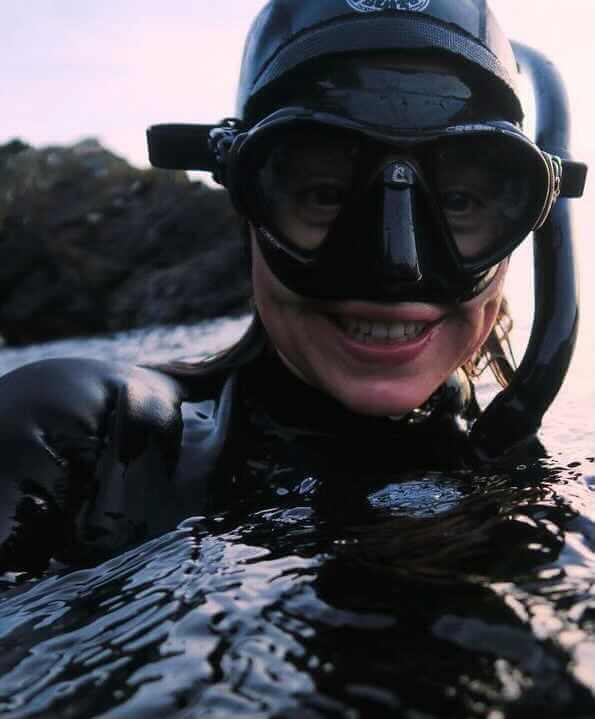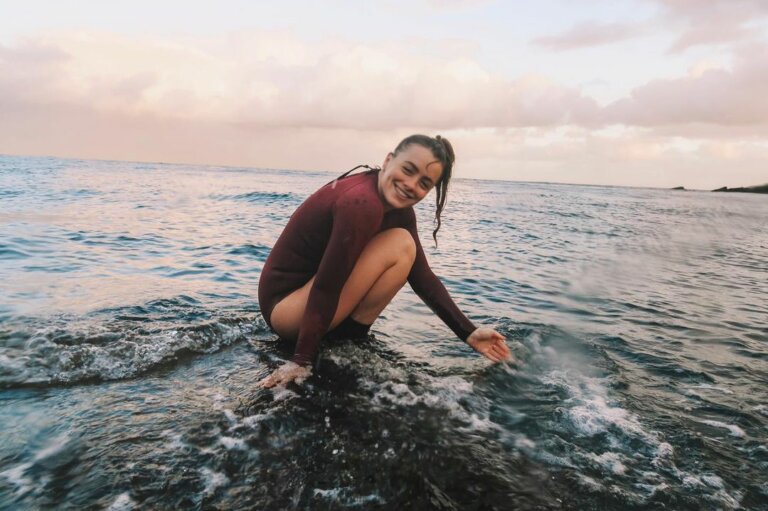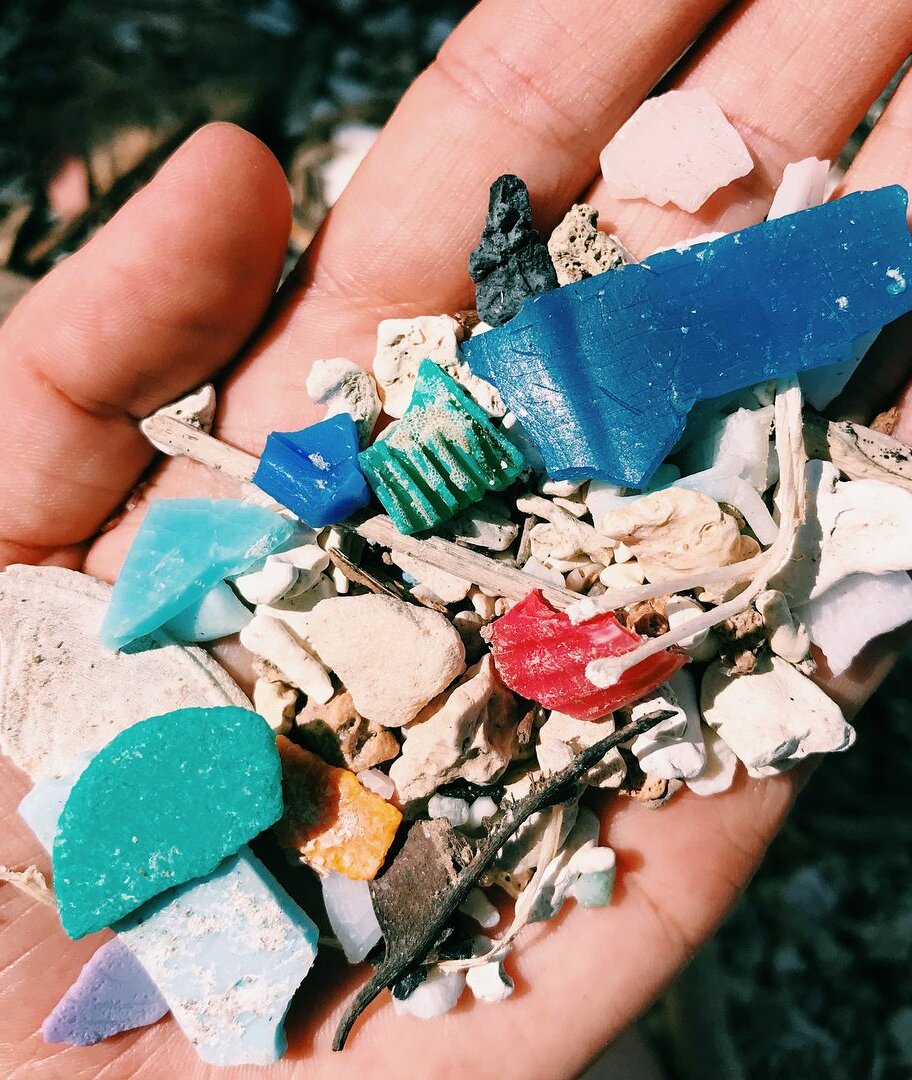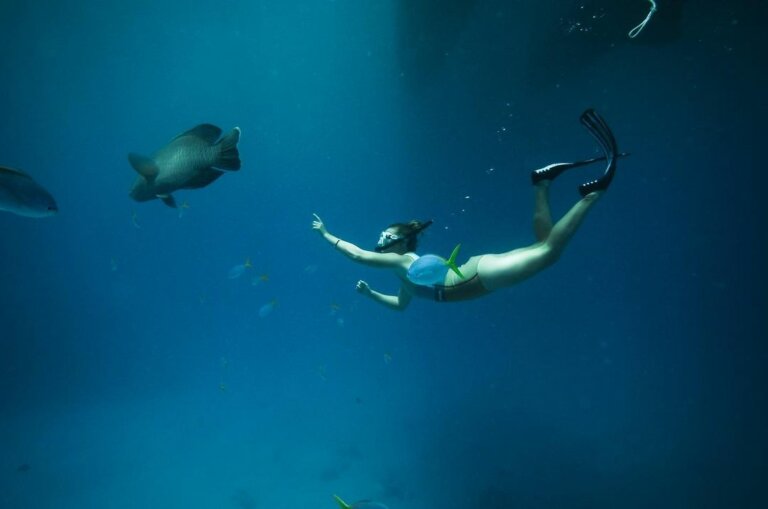
PHOTOGRAPHY ALL IMAGES COURTESY OF @ocean_row
INTERVIEW KIRSTINE ENGELL @kirstineengell
The ocean has this incredible ability to sustain life, and we wouldn’t be here without it; it provides the air we breathe, our weather and climate, food and medicine, it’s a place to float away from it all, to find solace, exhilaration, and adventure.
So for me, ocean sustainability is all about creating space for nature to do its thing. It’s about us striving to live in harmony with the natural world and understanding that we are nature, and it’s our duty to care for and restore our ocean, not only for our health and well-being but also for the rest of the natural world.
There is so much we can do to impact the ocean and the world around us positively. I’m no beauty expert, but from the marine perspective, I would like to see a ban on environmentally harmful ingredients in products, such as microbeads and coral-harming chemicals.
As well as a move to plant-based alternatives to marine-derived ingredients, such as squalene, which is a hydrating ingredient used in cosmetics that can often come from shark liver but can come from plant-based sources!
For individuals, I think it’s about choosing responsible brands that have strong ethical and environmental values, not over-consumption, and remembering that real beauty comes from within.

I think there is a considerable lack of knowledge and understanding on our impact on the ocean generally. The fishing industry has a huge responsibility to reduce pollution and overfishing. Still, it’s important to remember that our actions on land, and sea, also have a phenomenal impact on our seas.

Do you think there is an importance of connecting or reconnecting to nature, as well as the power of individual and collective action to save our oceans?
Your mantra and message are “together we can rise above plastic.” How do you get that out there?

What can the rest of us do in our everyday lives to minimize plastic pollution and live more sustainably?
For me, it’s about people doing what they love, cultivating community, joy, and making space to imagine a better future. I’m not perfect at it, but I’m trying to live in a way now that I want to live in the future, rather than getting stuck always thinking about tomorrow, living a life now that’s connected and as conscious as possible.
How – eat more plants, grow food, laugh, join a community group, support local businesses, compost, stand up for what you care about, create space for joy and imagination, shop second hand and sustainable products, create art and music, figure out what you want to do and do it, be the change you wish to see in the world.
| Cookie | Duration | Description |
|---|---|---|
| cookielawinfo-checkbox-analytics | 11 months | This cookie is set by GDPR Cookie Consent plugin. The cookie is used to store the user consent for the cookies in the category "Analytics". |
| cookielawinfo-checkbox-functional | 11 months | The cookie is set by GDPR cookie consent to record the user consent for the cookies in the category "Functional". |
| cookielawinfo-checkbox-necessary | 11 months | This cookie is set by GDPR Cookie Consent plugin. The cookies is used to store the user consent for the cookies in the category "Necessary". |
| cookielawinfo-checkbox-others | 11 months | This cookie is set by GDPR Cookie Consent plugin. The cookie is used to store the user consent for the cookies in the category "Other. |
| cookielawinfo-checkbox-performance | 11 months | This cookie is set by GDPR Cookie Consent plugin. The cookie is used to store the user consent for the cookies in the category "Performance". |
| viewed_cookie_policy | 11 months | The cookie is set by the GDPR Cookie Consent plugin and is used to store whether or not user has consented to the use of cookies. It does not store any personal data. |